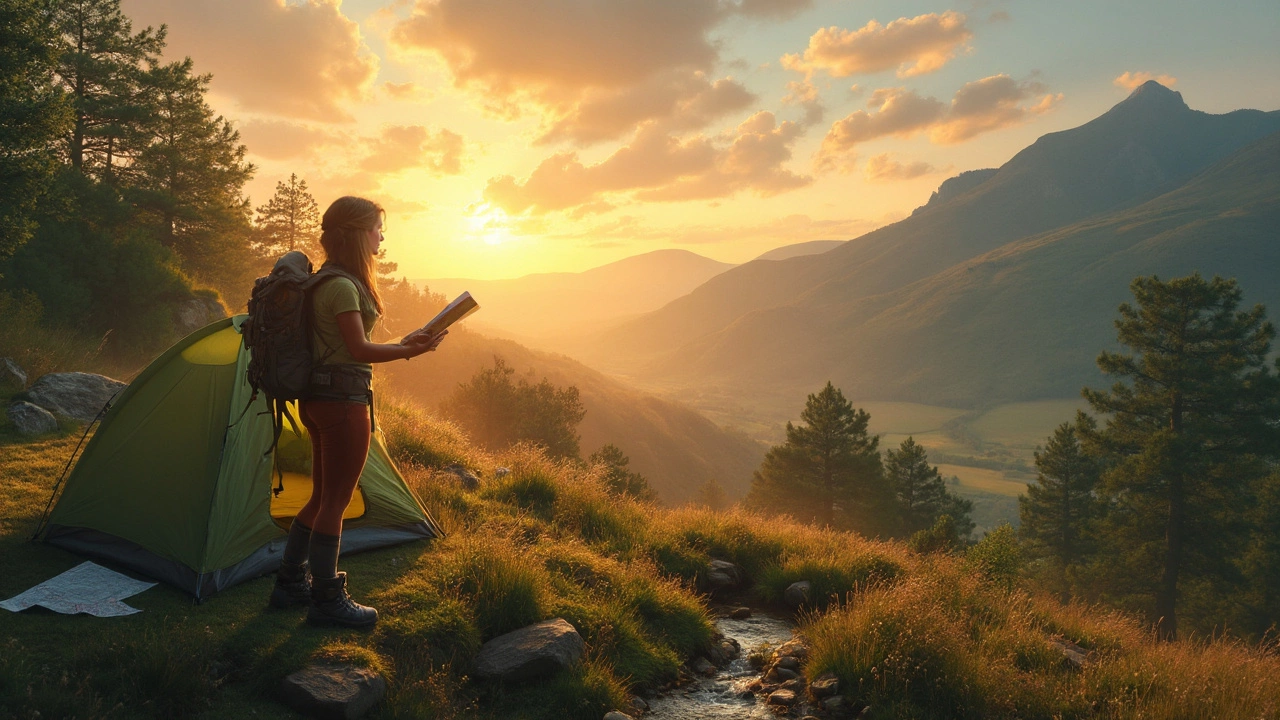Woman Solo Camping: Practical Tips for Safe and Fun Adventures
Going out on your own can feel amazing, but it also means you need a solid plan. Whether you’re setting up a tent on a beach, pulling a camper to a remote lake, or parking a motorhome at a local site, the basics stay the same: stay safe, stay comfortable, and enjoy the freedom of solo travel.
Plan Your Trip Like a Pro
Start with a quick map check. Look for campsites that let solo visitors book a spot—many UK parks now have online systems that show availability in real time. If you want a wild‑camping vibe, check the local byelaws first; some English beaches allow a night of sleep, while others can fine you on the spot.
Write down three things: where you’ll be each night, how you’ll get there, and who knows your itinerary. A simple text to a friend or family member works wonders if you ever need help. Pack a small “essentials” bag with a spare charger, a first‑aid kit, and a whistle—these items take up little space but can be lifesavers.
Stay Safe on the Ground
When you arrive, do a quick site walk‑around. Look for fire hazards, check that the campfire area is clear, and make sure there’s a safe spot to set up your tent or motorhome. If you’re using a van, remember the bathroom rules—some campsites let you use the toilet while parked, but driving and peeing is a no‑go.
Lighting matters. A headlamp with extra batteries is better than a phone flashlight. Keep your campsite well lit at night, especially if you’re on a public beach where tides can change quickly. And lock the doors of your motorhome or van; a simple “stay‑locked” habit reduces the chance of unwanted visitors.
Food safety is another easy win. Store perishables in a cooler with ice packs and keep raw meat separate from ready‑to‑eat snacks. A tidy cooking area not only tastes better but also cuts down on wildlife encounters—no one wants a curious fox raiding your pantry.
If you’re planning to hike or explore nearby trails, pack a basic navigation kit: a paper map, a compass, and a charged phone with offline maps. Trusting only a GPS can backfire when the signal drops, especially in remote coastal spots.
Finally, trust your gut. If a campsite feels off or a local rule seems unclear, move on. The UK has plenty of alternatives—from organized caravan parks with electricity hookups to quiet dunes where you can pitch a tent legally. Each choice adds a layer of comfort to your solo adventure.
Solo camping isn’t about going it alone in the sense of isolation; it’s about being prepared, staying aware, and making the most of every sunrise you watch from your own space. Follow these simple steps, and you’ll turn a solo trip into a confidence‑boosting experience you’ll want to repeat.
Is Solo Camping Safe for Women in the UK?
Solo camping can be an empowering experience for women, offering a unique opportunity to connect with nature and oneself. There are numerous campsites across the UK that provide a safe and secure environment to explore alone. From choosing the right spot to staying connected with others, preparation is key to a successful solo camping trip. This article offers practical tips and insights to help women feel more secure and prepared for their solo adventure.
